Black women created the term 'reproductive justice.' Now, it's driving a national conversation.
Loretta Ross could feel the excitement in the Chicago hotel room, where she and 11 other Black women gathered during a health care conference in June 1994.
That day, the women had felt their communities and their reproductive health care needs were being sidelined, so they pulled away from the other 200 white women there for a private chat.
“It was a rare moment to have this inter-organizational dialogue from the perspectives of Black women,” Ross said. “And that felt very exciting.”
They called themselves the Women of African Descent for Reproductive Justice. And in that hotel room, the term “reproductive justice” was born.
Thirty years later, the framework has become a driving force in the national conversation about abortion access, with a new generation of activists pushing for a broader conversation about reproductive freedom in the United States.
The reproductive justice movement goes far beyond abortion rights. It combines social justice with human rights to take into account how a person’s intersecting identities affect their ability to make choices about their reproductive life.
SOUTH CAROLINA WOMAN ARRESTED: Incident draws attention to criminalization of self-managed abortions
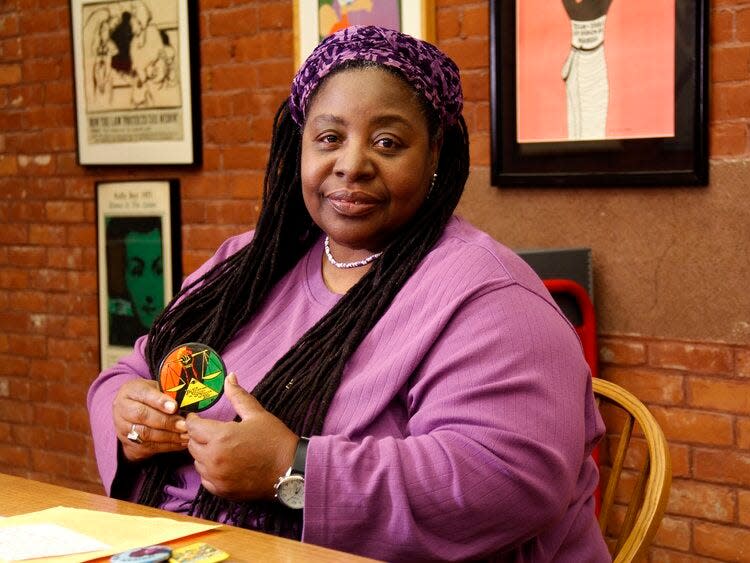
In addition to advocating for the legal right to abortion, many reproductive justice organizations push for policies that specifically help marginalized communities access reproductive health care. They help fund abortion care, transportation to out-of-state clinics, and prenatal and postnatal care. Many look at how issues ranging from police brutality, mass incarceration and the lack of access to HIV care, among other topics, affect people's ability to have and raise children.
Reproductive justice hinges on the human right “to maintain personal bodily autonomy, have children, not have children, and parent the children we have in safe and sustainable communities,” said Monica Simpson, executive director of SisterSong Women of Color Reproductive Justice Collective, a multiracial reproductive justice organization.
'THIS IS WHAT WE FEARED': Latinas are largest group of women of color affected by abortion bans
What are the principles of reproductive justice?
The reproductive justice movement was founded by Black women who felt the debate around abortion rights was often driven by white women who may not have taken into account the extra barriers some communities, such as people of color, immigrants, LGBTQ+ folks and low-income households, face when trying to access health care. For many, advocates note, the struggle extends far beyond whether they have legal access to abortion because of a history of discrimination that could make it harder for certain groups to pay for abortion and child care and overcome language barriers or other obstacles.
Past movements also ignored systemic barriers that prevented marginalized communities from having children and raising them safely, said Marsha Jones, executive director of the Afiya Center, a Texas-based reproductive justice organization. Those challenges include access to prenatal and postnatal care, racism in healthcare settings and environmental injustice,
“Reproductive justice was created by Black women during a space and a time where we weren't talking about the most vulnerable communities and their lived experiences,” Jones said.
After the Women of African Descent for Reproductive Justice formed, they collected signatures from Black women wanting health care reform and put out newspaper ads calling for reform packages to include concerns of Black women.
“We thought it was going to have a short shelf life,” said Ross, a founding member of SisterSong. “We didn't expect what it would become.”
HUMAN RIGHTS GROUPS PEN LETTER TO U.N.: US abortion bans violate international law, 200 human rights groups say
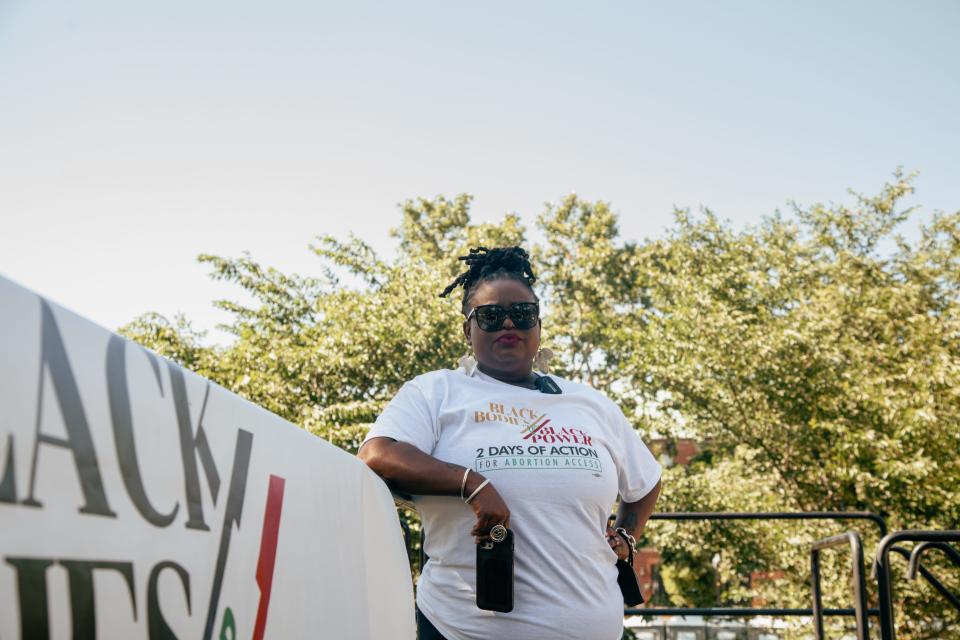
What happened after Roe v. Wade was overturned?
After the Supreme Court last year struck down Roe v. Wade, the 1973 ruling that had protected abortion rights at the national level for decades, many women who supported abortion rights and wanted to fight back began looking for a movement that aligned with their goals. Google searches for "reproductive justice" spiked by almost 10 times that summer.
Since then, several reproductive justice leaders said they've gotten more funding opportunities. More are partnering with national reproductive rights and civil rights organizations. SisterSong, for example, has expanded its work with the NAACP, Lawyers' Committee for Civil Rights, National Urban League, National Action Network and Legal Defense Fund. Activists are also getting a more direct line to the White House with Vice President Kamala Harris inviting reproductive justice groups to a February round table.
Harris acknowledged the women who coined the term reproductive justice in remarks in Austin last October, saying they understood "the need to identify, articulate and address those inequities based on race, based on income, based on location."
"They’ve not always been acknowledged, but they’ve always been there, because they see and know what’s happening in their own communities," Harris said.
Lupe Rodriguez, executive director of the National Latina Institute for Reproductive Justice, said she is seeing more reproductive justice groups led by people of color "getting seats at the table."
“Change can feel slow but it’s happening," she said.
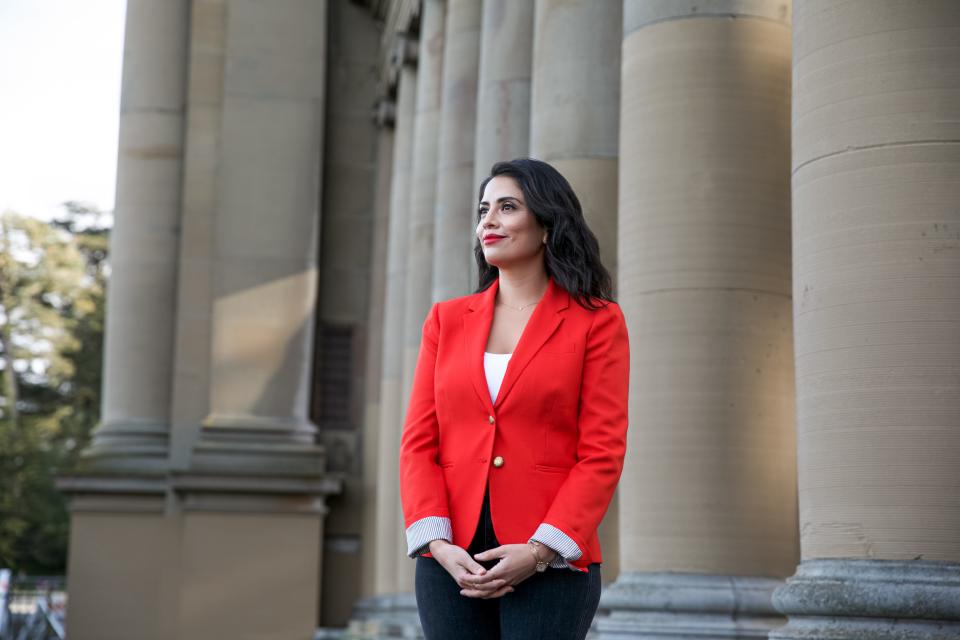
A sisterhood of activists
For many women involved in the reproductive justice movement, linking up with a group of activists who seemed to understand many of the challenges facing women in need of health care was like finding a sisterhood.
When Simpson was a high schooler in abstinence-only sex education classes in rural North Carolina, she said she had to read Cosmopolitan magazine to learn what a condom was. She felt lost and unsupported.
“Meanwhile, these Black women were building this movement where eventually I would find a home and become a leader in helping other young Black girls who look like me not have the same experiences I did,” Simpson said. “I'm so grateful to be walking in their footsteps."
IVF ACCESS: Patients worried IVF treatments could become illegal under abortion bans, doctors say
Three years after the term reproductive justice was coined, SisterSong formed as a coalition between 16 organizations led by Black, Asian American, Latina and Native American and Indigenous women and queer activists.
The group now provides training to colleges, schools and community groups on the history and principles of reproductive justice. It also provides a fund for those who need support during and immediately after pregnancies; labor trainings on advocating for oneself in health care settings; community conversations about reproductive justice; doula skills training; and a fund for artist-activists.
For Sung Yeon Choimorrow, executive director of National Asian Pacific American Women's Forum, who spent years working in social justice movements, including immigrant rights and labor, she said was frustrated by how siloed each movement felt, even though people’s experiences cannot be reduced to single-issue struggles. When she found reproductive justice, she said it was “a huge gift.”
“It felt like an awakening,” she said. “This framework really helped me put words to that frustration and have language for the movement I wanted to be a part of.”
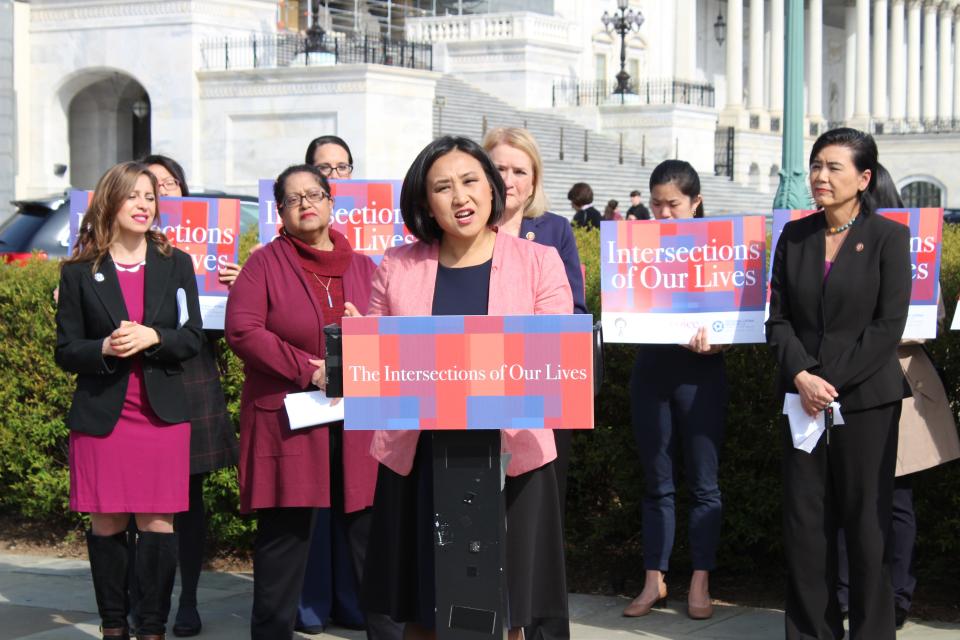
Rodriguez, of the National Latina Institute for Reproductive Justice, said a new generation of reproductive justice activists are building on the work of those before them. The Latina Institute, for example, melds civil rights, economic justice, immigrant rights and reproductive justice in its policy work, awareness campaigns, training of local Latina activists and research into Latinas' reproductive needs.
Ross, one of the founders of reproductive justice, said she remains “eternally surprised and excited” by where other activists have taken the framework as it expands to reflect the needs of more communities. For example, just a few years after the framework was created, it was edited to include a principle on bodily autonomy, the right to gender identity and the right to sexual pleasure.
“Every iteration of reproductive justice is going to have a transformative characteristic about it because it is very flexible and adaptable,” she said. “When Native American women use the framework, they infuse into it discussions of sovereignty. When immigrant women use it, they're talking about citizenship rights. The framework is broad enough to build a container for everyone and their needs and vulnerabilities and identities.”
MEDICATION ABORTION THREATENED: A Texas judge could soon force a major abortion pill off market nationwide
Do all abortion access activists support reproductive justice?
Despite more attention toward reproductive justice, several activists told USA TODAY that larger, reproductive rights organizations still attract the most national attention and resources. Many, they said, have co-opted reproductive justice language without honoring its history, including the voices of people from marginalized communities, and acknowledging the additional barriers certain communities face in the fight for reproductive freedom.
For years, Jones said she never saw her needs as a Black woman addressed in white-led Texas organizations, so she created the Afiya Center. In 2016, she hosted a Black Woman's Reproductive Justice summit. During planning, she received dozens of calls from Black women who spoke about feeling sidelined in reproductive rights spaces.
“Reproductive justice in Texas didn't look like what I felt like the founding mothers intended,” she said. “It didn't center the most vulnerable. It didn't center intersectionality. It really just looked like a bunch of white women running around, screaming about reproductive justice because it looked and sounded good but not really doing the reckoning to understand what that means.”
VIEWS ON ABORTION IN STATES: Many Americans living in states where abortion rights are limited want more rights
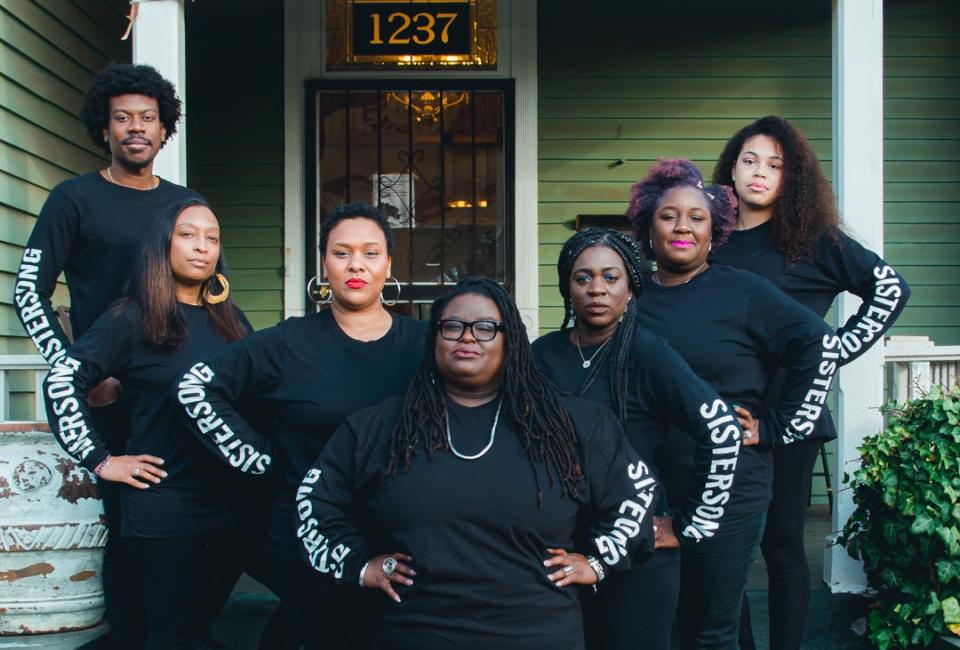
As the reproductive justice framework gains visibility, Choimorrow, of the National Asian Pacific American Women's Forum, said it’s important to ensure organizations using the phrase “reproductive justice” have an appreciation of the term’s history and meaning. She said many organizations use the term without “reflecting on the anti-Blackness and racism within their own organizations.”
“It takes the spirit of the framework away,” she said. “It waters it down, and it once again uses the work of Black women while ignoring the realities they face and sidelining the folks this framework was meant to center.”
Nourbese Flint, senior director of Black leadership engagement and partnerships at Planned Parenthood, said the organization "has made mistakes in the way we have approached this work."
In 2014, for example, Simpson and other activists wrote an open letter criticizing Planned Parenthood for using reproductive justice language without acknowledging the decades of work of reproductive justice activists.
FALL OF ROE HITS INDEPENDENT CLINICS: Independent abortion clinics are 'disappearing from communities' after the end of Roe
"I do think there is a history of organizations, including ours, that didn't get it right in how we talked about reproductive justice," Flint said. "There are organizations that have used the word reproductive justice but not known exactly what it means and its history."
Melanie Roussell Newman, senior vice president of communications and culture at Planned Parenthood, said that "until recently, Planned Parenthood had kept quiet during times when we should have spoken out more assertively against racism, discrimination, and white supremacy, and took up too much space in moments where fellow leaders’ and partners’ voices should have been elevated."
Planned Parenthood is a reproductive health and rights organization, rather than a reproductive justice organization, due to its emphasis on health services and reproductive rights policy, Flint said.
As a result, she said it's especially important for them to partner with reproductive justice groups. Flint said Planned Parenthood is strategizing more closely with reproductive justice groups and offering funding opportunities, including a Future of Abortion fund that has granted over a million dollars to groups led by people of color in the past year.
"The work is never done until we all see liberation," Flint said.
'IT'S TIME FOR US TO BE BOLD': Why six religious leaders are fighting to expand abortion access
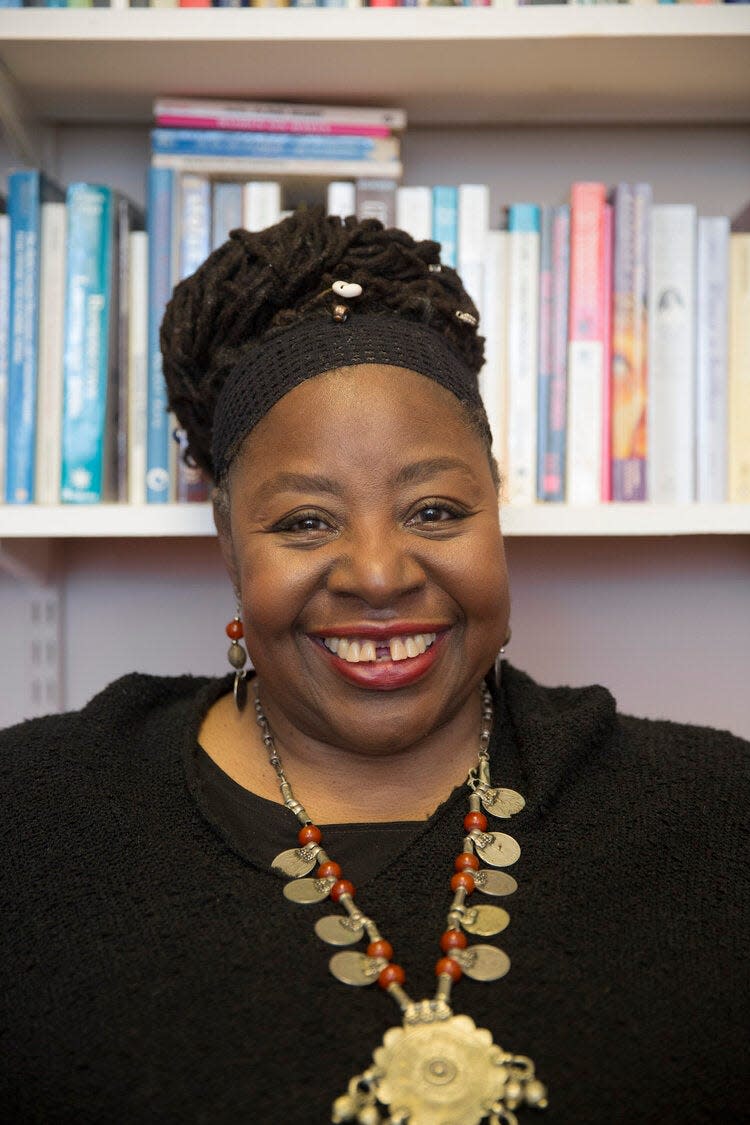
Contact Christine Fernando at cfernando@usatoday.com or follow her on Twitter at @christinetfern.
This article originally appeared on USA TODAY: Reproductive justice: Women need better health care, abortion rights

